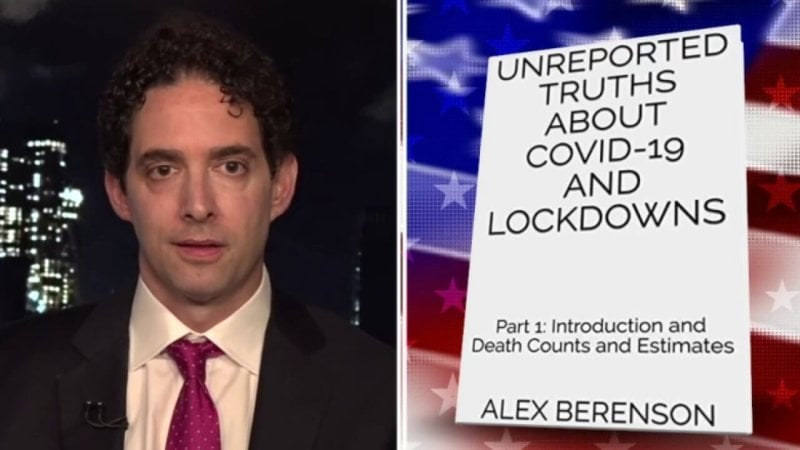Alex Berenson: the former New York Times reporter, Yale-educated novelist, avid tweeter, online essayist, and all-around pandemic gadfly [has] has been serving up COVID-19 hot takes for the past year, blithely predicting that the United States would not reach 500,000 deaths (we’ve surpassed 550,000) and arguing that cloth and surgical masks can’t protect against the coronavirus (yes, they can).
…
For the past few weeks on Twitter, Berenson has mischaracterized just about every detail regarding the vaccines to make the dubious case that most people would be better off avoiding them. As his conspiratorial nonsense accelerates toward the pandemic’s finish line, he has proved himself the Secretariat of being wrong:
- He has blamed the vaccines for causing spikes in severe illness, by pointing to data that actually demonstrate their safety and effectiveness.
- He has blamed the vaccines for suppressing our immune systems, by misrepresenting normal immune-system behavior.
- He has suggested that countries such as Israel have suffered from their early vaccine rollout, even though deaths and hospitalizations among vaccinated groups in Israel have plummeted.
Usually, I would refrain from lavishing attention on someone so blatantly incorrect. But with vaccine resistance hovering around 30 percent of the general population, and with 40 percent of Republicans saying they won’t get a shot, debunking vaccine skepticism, particularly in right-wing circles, is a matter of life and death.































